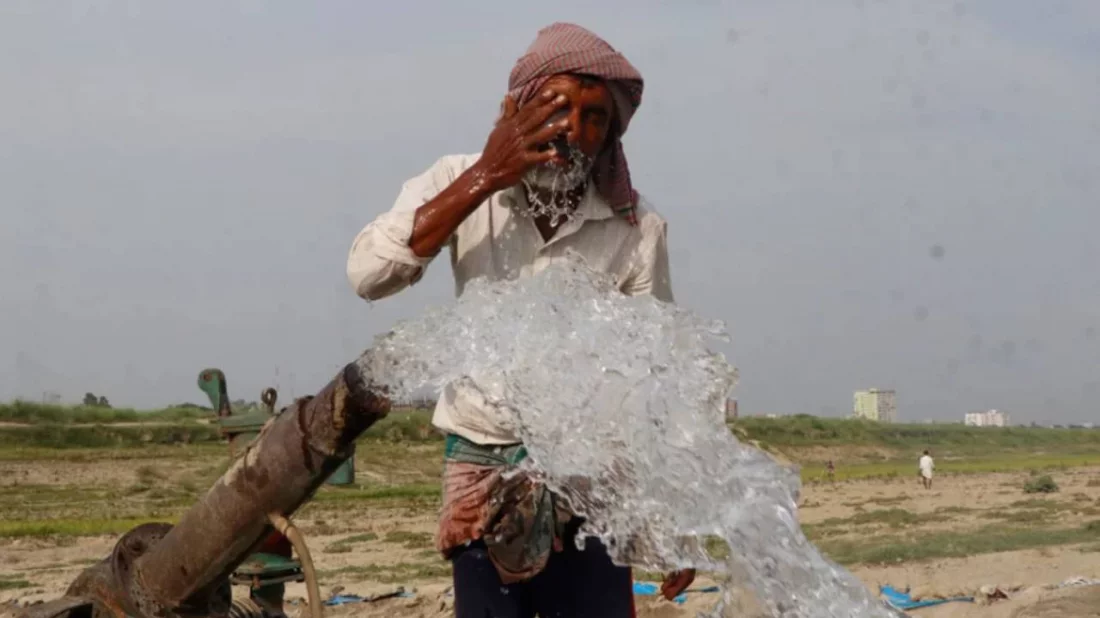
If the latest World Bank flagship report – South Asia Development Update – is something to go by, there is good reason to rejoice as it projects a better growth prospect for South Asia comparing to other developing economies.
The Bank’s Chief Economist for South Asia, Franziska Ohnsorge, however, forewarns of one major downside – climate shocks.
At a virtual meet on Tuesday, Franziska was sharing the key findings of the report and some of her insights with a select group of South Asian editors.
And her emphasize on climate shocks resonates very well with people living in Bangladesh, one of the top climate change vulnerable countries in the world right at this moment.
In recent years (2018-2022), Bangladesh has experienced a 0.9℃ rise in its summer temperature relative to the 1986-2005 baseline. That’s 0.2℃ higher than the global average increase in summer temperatures.
World Bank referred to the 2023 report of the Lancet Countdown on Health and Climate Change, to note that there is only one country in South Asia that has witnessed higher temperature rise than in Bangladesh. That’s Afghanistan (1.3℃).
Franziska Ohnsorge, who holds a PhD from the University of Toronto, put special emphasize on improving climate resilience as she reckons the South Asian region most vulnerable to climate change.
She said over 40% of the region’s total working population are absorbed in farm sector and many of them are now finding it increasingly too hot to work, out in the fields.
Lancet’s 2023 report is a testament to that reality.
World Bank referred it to say, the average summer temperatures have increased in South Asia, increasing the time when it is too hot to work outside and the land area affected by drought. It fears, climate change will raise poverty.
It says, currently the number of hours when it is too hot to work outside in Bangladesh is 7-hr but projection is that it might increase to 8-hr by 2050.
According to Lancet report, heat exposure-related loss in labour capacity resulted in average potential income losses equivalent to $863 billion globally in 2022 and agricultural workers were the most affected. Rising temperature helped 28.6% increase in the transmission potential for dengue by Aedes aegypti.
Climate shocks
According to a United Nations Environment Programme (UNEP) report 2023, without a massive change in policies, the world is on track to warm by an average of 3℃ above preindustrial levels this century.
Climate change is taking a rising toll on human health and well-being through increasingly frequent weather extremes such as heatwaves, floods, and droughts, as well as a greater incidence of infectious diseases, World Bank notes.
Heatwaves are particularly damaging for South Asia, because of its already relatively warm average temperature and its large agricultural sector, accounting for about 40% of employment.
High temperatures already pose at least a moderate risk of heat stress for people engaged in light outdoor activity for more than five hours a day in much of the region, and periods of unhealthily high temperatures are expected to increase in both duration and intensity in the coming decades. Higher temperatures will also make the land less productive.
The land area affected by extreme droughts has increased by one-third in Pakistan and more than doubled in Bangladesh and India since the 1950s.
Rising temperatures are also on track to cause the glaciers in the Hindu Kush Himalaya region to lose up to 80% of their volume by 2100. This would increase the probability of floods and landslides for adjacent communities, and threaten water scarcity for the 1.7 billion people residing downstream.
Highly populated coastal areas will also be affected by climate change. Rising sea levels will make much land uninhabitable, and are one reason why an estimated 40 million people in South Asia are expected to be forced to migrate because of climate change by 2050.
Globally, climate change is expected to reduce GDP per capita by an average of about 7% by 2100.








